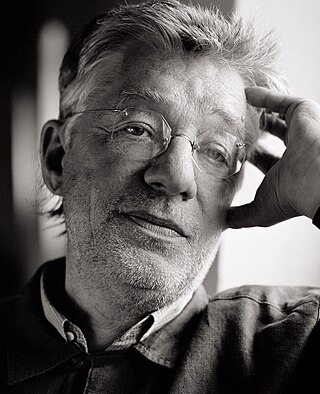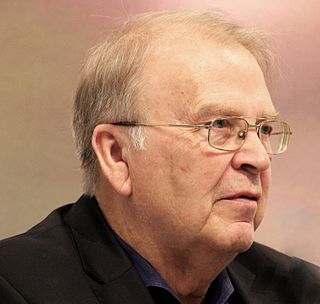
German literature comprises those literary texts written in the German language. This includes literature written in Germany, Austria, the German parts of Switzerland and Belgium, Liechtenstein, Luxembourg, South Tyrol in Italy and to a lesser extent works of the German diaspora. German literature of the modern period is mostly in Standard German, but there are some currents of literature influenced to a greater or lesser degree by dialects.

Karl Georg Büchner was a German dramatist and writer of poetry and prose, considered part of the Young Germany movement. He was also a revolutionary and the brother of physician and philosopher Ludwig Büchner. His literary achievements, though few in number, are generally held in great esteem in Germany and it is widely believed that, had it not been for his early death, he might have joined such central German literary figures as Johann Wolfgang von Goethe and Friedrich Schiller at the summit of their profession.

Karl Ferdinand Gutzkow was a German writer notable in the Young Germany movement of the mid-19th century.

Botho Strauss is a German playwright, novelist, and essayist.

Jakob Michael Reinhold Lenz was a Baltic German writer of the Sturm und Drang movement.

Heinrich Laube, German dramatist, novelist and theatre-director, was born at Sprottau in Prussian Silesia.

Wilhelm Genazino was a German journalist and author. He worked first as a journalist for the satirical magazine pardon and for Lesezeichen. From the early 1970s, he was a freelance writer who became known by a trilogy of novels, Abschaffel-Trilogie, completed in 1979. It was followed by more novels and two plays. Among his many awards is the prestigious Georg Büchner Prize.

Danton's Death was the first play written by Georg Büchner, set during the French Revolution.

Max Herbert Eulenberg (1876–1949), was a German poet and author born in Cologne-Mülheim, Germany. He was married from 1904 to Hedda Eulenberg.
Helmut Heißenbüttel was a German novelist and poet. Among Heißenbüttel's works are Das Textbuch and Marlowe's Ende. He received the Georg Büchner Prize in 1969. His other awards include the Bundesverdienstkreuz Erster Klasse (1979) and the Austrian State Prize for European Literature (1990).
Christian Ludolf Wienbarg was a German journalist and literary critic, one of the founders of the Young Germany movement during the Vormärz period.

Rosa Ludmilla Assing was a German writer, who also wrote under the pseudonyms Achim Lothar and Talora.

Reinhard Jirgl is a German writer.
Michael Buddrus is a German historian.
Hartmut Steinecke was a German literary critic and university lecturer.
Martina Wagner-Egelhaaf is a Senior Professor at the University of Münster, Germany. She was a Professor of German Literature at the University of Münster, and held a chair in German Literary History with special focus on Modernity and Contemporary Literature. Her fields of research include Autobiography/Autofiction, Literary Theory, Rhetoric, Literary and Cultural Studies, Gender Studies, and the relation of Religion, Politics and Literature.
Ursula Püschel was a German literary critic, journalist and writer. One focus of her activities was the work of the writer Bettina von Arnim, a representative of the Vormärz-Literatur.
Events from the year 1835 in Germany
Herybert Menzel was a German poet and writer during the time of National Socialism as well as a member of the Bamberg poet circle.

Jenny Aloni was a German-Israeli author, who is considered one of the most important authors of German-language literature in Israel.











